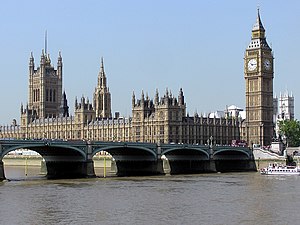 Image by brothergrimm via Flickr
Image by brothergrimm via Flickr
The Tories are very reluctant to spell out much about the policies this far in advance of a likely general election. As a result they keep sending out mixed signals on what they will actually do if elected, which are usually not picked up in the press.
An example would be David Cameron's high profile anti-homophobia stance vs a new report from
Ian Duncan Smith's
Centre for Social Justice which says that some rights of same-sex partners who are not biological parents should be downgraded, all in the name of maintaining 'normality'.
"We believe the desired objectives could be better achieved by giving a same-sex partner special guardianship status rather than by having two females registered as parents, since this is fundamentally incompatible with the heterosexual reality of parentage," they say.
Another bunch of mixed messages are on government use of social networks and IT.
Civil Pages is a new internal government social network which is based on highly successful ones used in many big businesses like IBM. The idea is to help departments work collaboratively, share knowledge and best practice, and avoid duplication of work.
The Daily Mail lept on it, dubbing it the government's 'Facebook' and ran to a Tory MP for a negative comment. They got
Eric Pickles, the Conservative Party chairman no less.
"We have 2.26million unemployed people crying out for Government help and Labour are squandering taxpayers' money on Facebook. What people want is for the Civil Service to get on with their jobs and give the taxpayer value for money. What they don't want is people idly wasting their time indulging in meaningless gossip."
I can just imagine those other Tories who are using social media to promote the party and who are promoting government use of it, those who 'get it', quietly throwing up their hands at this rent-a-quote ignorant nonsense.
Now we have
Damian Green, the shadow immigration minister,
going at public sector organisations sharing of IT systems and processes in the name of privacy.
Again sounding like a Daily Mail hit piece Green says:
"It has its roots in a false analogy with the private sector, which has indeed used ICT to provide services more efficiently and cheaply. The difference, of course, is that in almost all industries any private sector operator cannot compel us to use its services."
"Government can not only compel us to use them, but can change the rules, and the terms and conditions, whenever it suits."
Green also criticised the other two main elements of the
Transformational Government strategy, describing the aim of designing IT enabled services around the citizen and business as "largely cosmetic", and the campaign to build IT professionalism in government as "largely comic".
So does that mean he supports the opposite? Going backwards?
There is much to criticise about the delivery of 'transformational government' but Green sounds like he wants to return to paper shuffling - and inefficiency - in his drive to knock the government.
"The cost of running Britain's state run databases over the next 10 years has soared to £34bn. This is presented as being for the convenience of the citizen, when the overwhelming driver is the convenience of the state."
Note the use of the scare word 'databases' and I would seriously question what that figure actually means. Nowhere does this Tory talk about efficiency and better service delivery.
Green proposes five principles 'to determine the relationship of the citizen and the state', the fifth one of which is 'the delivery of public services should not be determined by technology alone'. What the hell does that mean?
It
sounds luddite, it
sounds like he equates 'technology' with the advance of the robots, it
sounds like a play to the Daily Mail-led gallery.
On government use of technology and social media the Tories speak with a forked tongue. Should those of us working to advance both be concerned enough to extend that metaphor?


![Reblog this post [with Zemanta]](http://img.zemanta.com/reblog_e.png?x-id=d114a1c7-7b50-4873-8ae8-d99afaacb8ce)


![Reblog this post [with Zemanta]](http://img.zemanta.com/reblog_e.png?x-id=fea7a7fd-7871-45be-8ea8-6f117dea7626)

![Reblog this post [with Zemanta]](http://img.zemanta.com/reblog_e.png?x-id=090d15df-e5d1-435d-a422-c082862709c7)

 @PubSecBloggers
@PubSecBloggers












